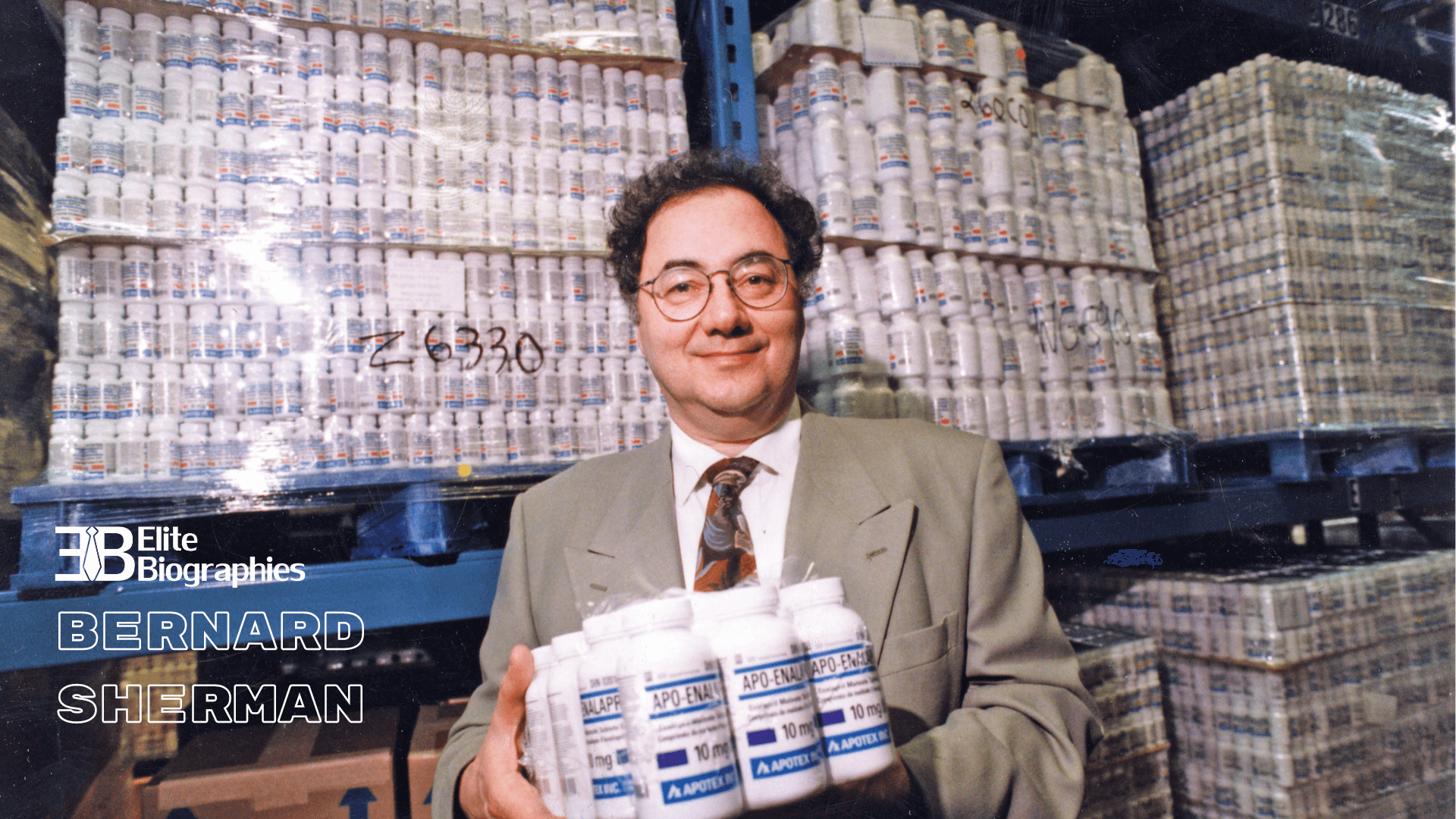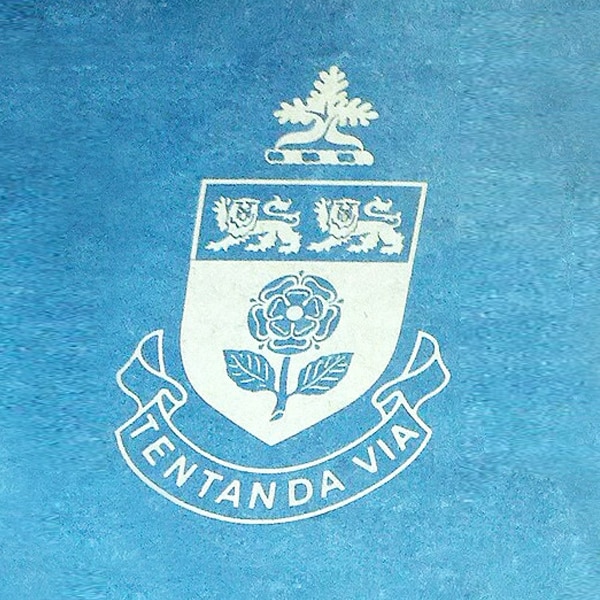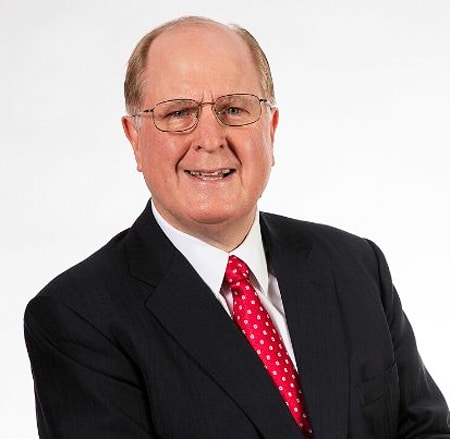Bernard (Barry) Sherman

Bernard (Barry) Sherman was a prominent Canadian pharmaceutical executive and the founder of Apotex Inc., a multinational pharmaceutical company. He held the positions of chairman and CEO of the company. With a significant net worth of approximately US$3.2 billion, he ranked among the wealthiest individuals in Canada. Sherman’s career in the pharmaceutical industry began with his involvement in Empire Laboratories, leading him to establish Apotex.
Early life
Bernard (Barry) Sherman was born on February 25, 1942, in Toronto, Canada. Barry Sherman was born into a Jewish family in Toronto to Herbert Dick “Hyman” Sherman, a business partner in a zipper company, and Sara “Sarah” Sherman, who worked as an occupational therapist after her husband’s passing. He grew up in a middle-class family and showed an early interest in the field of science and medicine. His grandparents on both sides had fled from persecution of Jews in Russia and Poland. Sadly, Sherman’s father passed away from a heart attack when he was just ten years old.
While attending the Forest Hill Collegiate Institute, Sherman showcased his academic prowess by winning a national physics contest and graduating with outstanding marks. In the summer of 1958, at the age of 16, he joined a Canadian Army organized student militia, but he soon discovered that he did not enjoy submitting to authority. During that same year, he became one of the youngest students to join the University of Toronto’s (U of T) engineering science program, specifically choosing it because of its reputation as the university’s most challenging program.
Throughout his summers, Sherman worked for his uncle, Louis Lloyd Winter, at Empire Laboratories, which was then Canada’s largest wholly owned pharmaceutical company. Sherman primarily worked as a driver, responsible for picking up urine samples for pregnancy tests. In his uncle’s absence, he often assisted in overseeing the company’s operations.
Sherman completed his undergraduate studies at U of T in 1964, graduating with the highest honors in his class. He was also awarded the university’s Governor General’s Award for his thesis. Subsequently, he pursued further education at the Massachusetts Institute of Technology, where he obtained a PhD in astrophysics in 1967.
Career
Sherman’s interest in a business career was sparked at the age of 10 when his father took him to his zipper factory in downtown Toronto and assigned him the task of counting and packaging zippers. To his father’s surprise, Sherman excelled in this task, surpassing the productivity of the paid staff within the same time. However, he also felt insulted when his father decided to recount the zippers himself.
After completing his PhD in 1967, Sherman acquired Empire Laboratories from the estate of Louis Lloyd Winter and his wife, Beverley. The couple had passed away just seventeen days apart, leaving behind their four orphaned children. Empire was a significant manufacturer of pharmaceutical products, holding the rights to produce Valium, Vibramycin, Orinase, and saccharin in Canada. The Winter estate allowed Sherman to purchase a majority stake in Empire on the condition that the Winter children could join the company at the age of 21 and have the option to purchase stakes in the company two years later. However, this agreement became void when Sherman sold Empire in 1969.
Sherman then entered into a share swap agreement with Empire’s largest customer, gaining control of the company. In 1970, he invested in the American firm Barr Laboratories, becoming its largest shareholder and serving as its president. Barr gained the rights to produce generic versions of Eli Lilly’s Prozac. Over time, Sherman’s stake in Barr grew, eventually reaching one-third of the company’s stock. Barr Laboratories later merged with Teva Pharmaceutical Industries in 2008, forming the world’s largest generic drugmaker.
In January 1972, Sherman and Ulster Limited sold Empire to the Canadian operations of the publicly traded International Chemical and Nuclear Corporation (ICN). As a result, Sherman’s agreement with the Winter estate was invalidated. The following year, he founded Apotex with former Empire personnel, incorporating the company in 1974. Apotex, privately owned and under Sherman’s control, positioned itself as Canada’s largest domestic pharmaceutical manufacturer. Sherman also ventured into nutraceutical manufacturing and other businesses, establishing the National Institute of Nutrition (NION) with Richard Kashenberg, which he later sold to Schiff before focusing on Apotex.
By 2016, Apotex had grown significantly, employing over 10,000 individuals and becoming one of Canada’s leading drug manufacturers. The company boasted a product portfolio of over 260 items, sold in more than 115 countries, generating approximately $1.5 billion in annual revenues.

Net Worth
At the time of his death in December 2017, his estimated net worth was around $4.6 billion.
Achievement
Bernard Sherman’s contributions to the pharmaceutical industry and his entrepreneurial spirit earned him several accolades. He received numerous awards and recognition for his dedication to the development of affordable and accessible medication. Some include:
Elite Biographies Features
Related Bios

York University
York University (commonly referred to as YorkU) is Canada’s third-largest university, renowned for its commitment to a...
Read More
Jennifer Reynolds
Jennifer Reynolds is a Canadian executive with more than 25 years of experience in the financial services sector. In the...
Read More
Josh Koziebrocki
Josh Koziebrocki is a Canadian lawyer, and the founder and principal of Koziebrocki Law, a Toronto-based firm establishe...
Read More
Donald Guloien
Donald Guloien is a Canadian business executive, best known as the President and CEO of the financial services company, ...
Read More

Social Profile
While Bernard Sherman kept a relatively low profile in the public eye, his impact on the pharmaceutical industry is widely recognized. He has no known public social profiles.